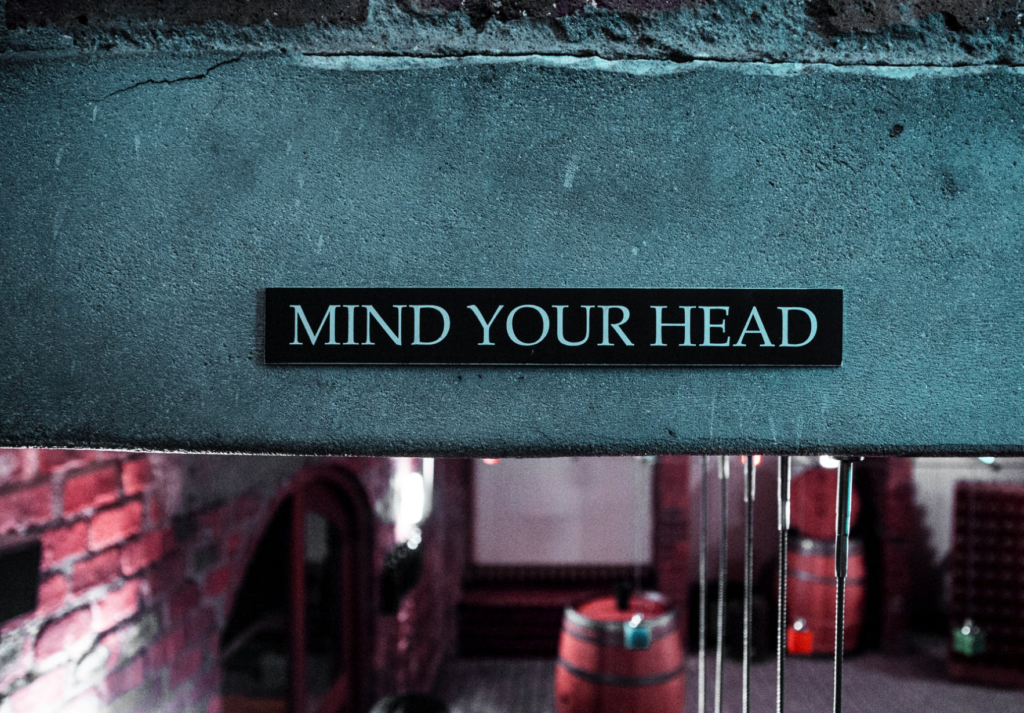
A little while back I introduced the Neurodivergent Spectrum, what it IS, and why it could particularly apply to writers and creative professionals. I even revealed some about my life, struggles, and late diagnosis in my post Neurodivergent Authors: Not Lazy or “Broken.”
There are many reasons for my late diagnosis, and we will cover some today.
***I am ALSO going to continue blogging on craft and brand, but this site has always focused on offering a holistic approach to creative professions—craft, branding, business, life and mental health.
But, before we talk about the autism spectrum, I would like to address why people might want to “care” about this topic, from writers to non-writers to Neurotypical people.
First, there are a lot more ND people out there than anyone ever imagined. Secondly, I believe our modern world and the digital age is either creating, contributing or exacerbating the situation.

If we cannot gain understanding, insight and compassion regarding this topic, I fear we will miss out on a lot of incredible talent and relationships.
We’re going to likely be around ND people. If we can recognize what’s possibly going on with that person, interactions can run far more smoothly. If we see WE have ND issues, then there are all kinds of workarounds once we realize we aren’t stupid, lazy, crazy, or broken.
This is a post about grace for ourselves and others.
Spectrum Self-Diagnoses

I can totally appreciate why many people roll their eyes when someone says they are ADD or ADHD or have Asperger’s or Autism. Some people might shout me down for saying this, but a huge reason I was hesitant to be professionally tested had to do with my attitude about the ND spectrum.
I’d personally encountered far too many people who’d used being on the spectrum as an excuse for never finishing, for flaking out, for being undependable, for being emotionally out of control, etc. Then, I was supposed to excuse all the poor behavior away because they were “insert ND issue here.”
Some of these folks were professionally diagnosed, but many were self-diagnosed. For the record, if you believe you are on the spectrum, you’ll likely start with a self diagnosis. And that is okay, because….
Most Medical Issues Begin This Way
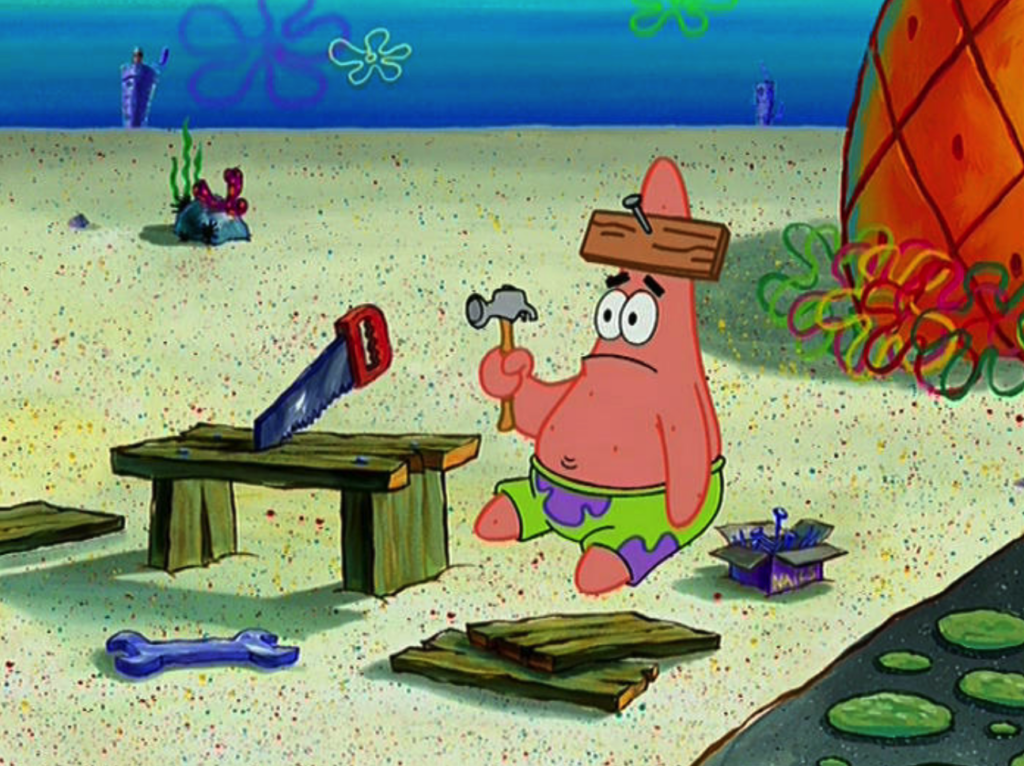
If we look at most of the health concerns we all face, we almost always begin with a self-diagnosis.
***Should we believe we “might” be on the spectrum, this is no different.
Say, I have a weird mole that is dark and itchy. I likely self-diagnose that it could be a skin cancer or melanoma. THEN I see an expert.
If I get a fever, bad cough, sore throat? I probably self-diagnose that I likely have either a cold or virus. THEN I go to a clinic to see what is actually going on. Could be a cold. But, it could be something far worse (cancer) or no big deal (severe allergies).
There is a lot of shade thrown around toward ND people regarding “self-diagnoses,” but what sense does that make?
In my opinion, there is nothing wrong with starting there, but we do need to see if we can get expert help. We might be on the ND spectrum but where exactly? We could also be struggling with other issues—eg. PTSS/PTSD from abuse or some other trauma.
The Spectrum is More than ADHD & Autism
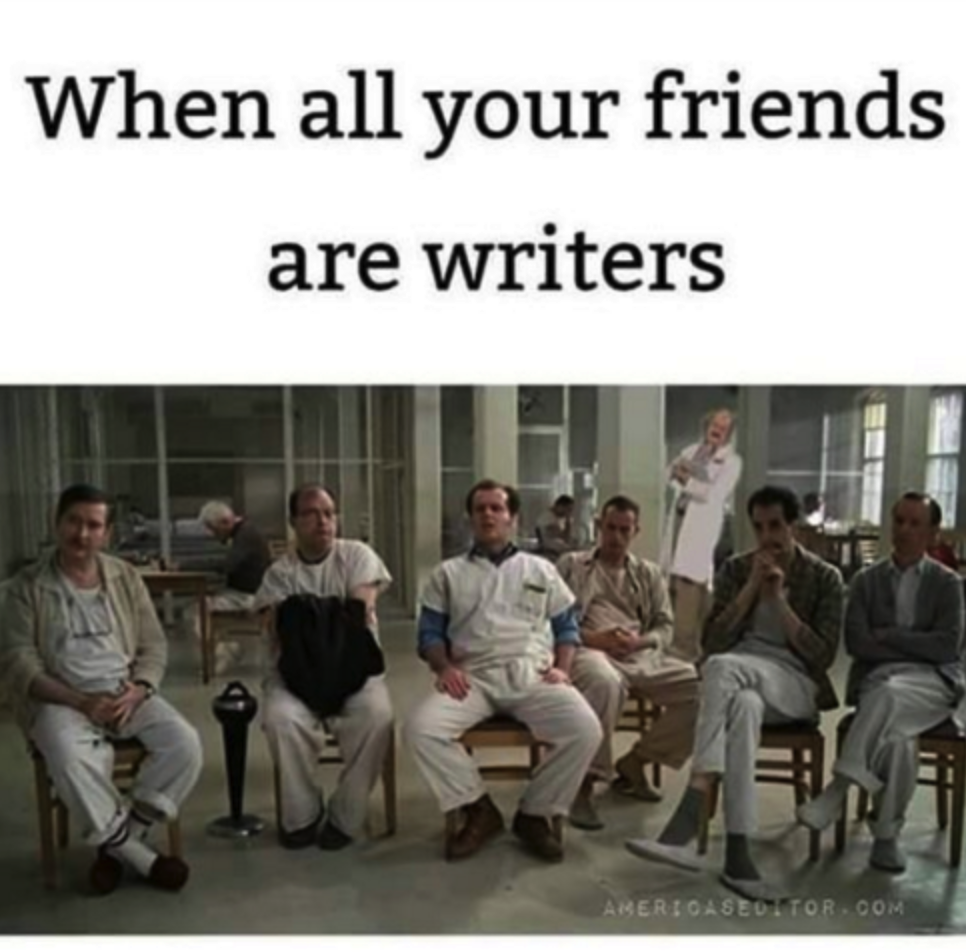
There is a lot of debate as to whether or not PTSD should be included on the ND spectrum (which can cover everything from dyslexia and dyscalculia to autism). Yes, PTSD (or PTSS) can cause structural changes in the brain. But, with proper treatment, much of that can be possibly reversed/healed.
Sadly, there is no healing ADHD.
Unlike those who are truly neurodivergent, PTSD isn’t a) congenital and doesn’t need to be b) permanent. ND people literally are born wired differently. It isn’t a result of a trauma or an acute stressor.
Thus, before we jump on the, “I must be ADHD” train, we might be struggling to pay attention because of undiagnosed dyslexia. We’re slow not because we can’t “pay attention,” but because it is such a struggle to work around a brain that tosses too many speed bumps in the way to be effective.
We might have PTSD and not recognize it, so we could be masking. Perhaps we are in denial, dealing with shame or guilt. Who wants our drama? So we mask.
Suffice to say, a spectrum self-diagnosis is a great start, but we want to make sure we’re getting good advice what is actually going awry. If we are on the spectrum then exactly how, where and to what degree?
If we aren’t, then what is going amiss that is looking a lot like a spectrum disorder?
Why a Diagnosis at ALL?

Since I believe I addressed this in other posts, I will be brief here. I did not self-diagnose (mostly out of pride, if I’m being transparent here).
It was not until over a half-dozen mental health professionals who were either friends, fans, or audience members who—after watching me speak—came up and said, “Hey, have you ever been tested for autism?” that I finally took things seriously.
Well, that is a bit of a lie.
I brushed almost all of them off believing I could just willpower my way through anything. Yep. That might have worked when I was younger and in a different world devoid of a BILLION blinking distractions. Eventually, however, the situation became untenable.
I was falling apart and pride and ego had to go.

Yet, when family members asked WHY I wanted a diagnosis, I had to answer that honestly. I don’t want or need an excuse, but I do need a plan of action that makes life doable and even enjoyable.
Once I understood HOW autism was affecting me, a lot of things changed. I am MUCH better at saying no, limiting activities, planning how I want to spend my energy. Now, others can appreciate why I practically LIVE in noise-cancelling headphones and they’re a bit more sympathetic when I ask to turn the lights down a little.
I could start being aware of my scripts. WHAT was happening right before I melted down? Exactly what transpired right before that bout of self-loathing? Why was I “seemingly” out of nowhere suffering sleep-deprivation, anxiety, or severe headaches?
Good news! We can actually rewrite the script! We’re writers.
***The answer to the above, for me, was largely environmental. Shop at times with no/smaller crowds. Get filters for my glasses/computer screen. Change the font on my computer to Dyslexie font. No screen time after 7:00 P.M. etc.
SUDDEN SPECTRUM Disorders
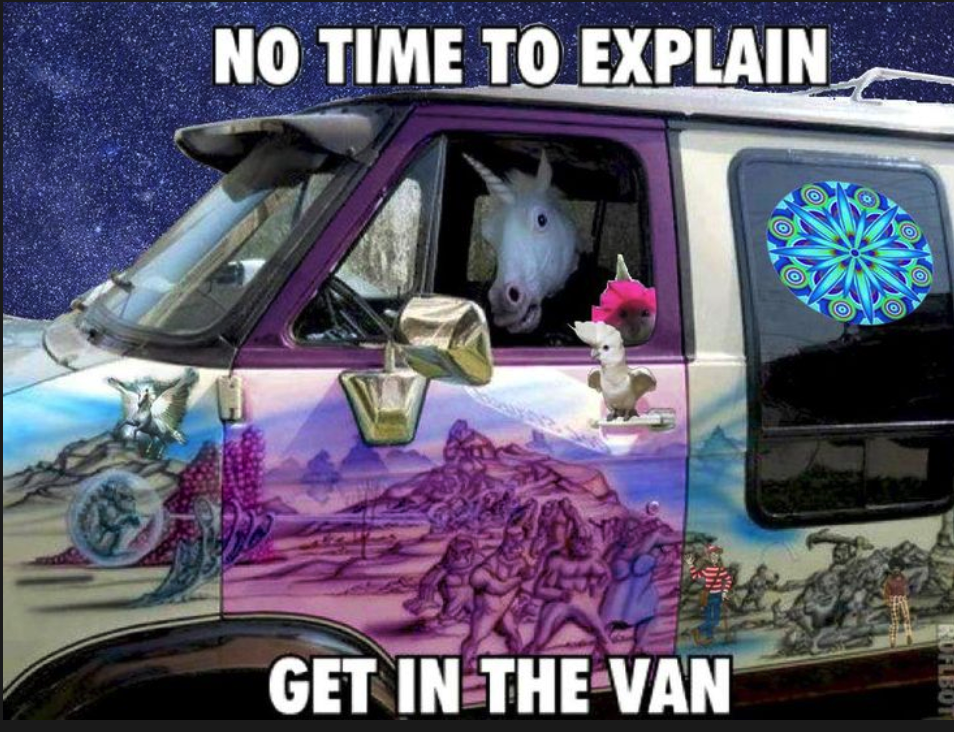
So now to the myth that SUDDENLY everyone is neurodivergent. Bear with me a moment because I am going to be a bit of a smart@$$. I am hoping everyone reading this believes that science, disease detection, understanding and treatment does improve over time.
We no longer diagnose people with consumption (Tuberculosis), Grippe (Flu), Apoplexy (a stroke), the Horrors (fever before delirium), Black Dog (severe depression), Falling Sickness (epilepsy), Mortification (gangrene), or Jail Fever (Typhus) etc.
***Click here for more Outdated Medical Terms. IMPRESS YOUR FRIENDS!
We also don’t bleed people to balance their humors, ladle Mercury down their throats, or insist they take Radium baths.
Or at least I hope not.
Cancer didn’t suddenly become rampant. We just didn’t have the tools and knowledge to recognize it existed, then to detect it, then to treat it, on and on. Hope y’all get the gist.
Yes, movies like Rain Man highlighted autism, but in ways, one could reasonably argue the movie almost did more harm than good.
The movie, Rain Man, showed the world a case of extreme autism (with other issues I’m not qualified to detail). Just because a person is autistic doesn’t mean we need a nursing aid to dress us and feed us before we go count cards in Vegas.
In fact, the concept there was even a neurodivergent spectrum didn’t even arise until the 1990s.
We are not ALL Rain Man.
Medicine & Science Improves

Or, at least we hope it does. Science is a process. As it improves, it can do a better job of detection. For instance, most medical and mental health professionals first only recognized autism when it manifested in the most acute forms (so severe the patient couldn’t function).
Then, many of these professionals believed until recently that children grew out of autism and Asperger’s (and also grew out of ADD, ADHD, etc.).
To make things even MORE fun, most mental health professionals—until very recently—believed only males could be autistic. Even I ran into this when seeking a professional diagnosis…in 2023!
I guess that doctor had never heard of Temple Grandin?
Suffice to say, I don’t believe that suddenly everyone is on the ND spectrum. I DO believe we are understanding the brain far better than we ever have in human history. And, because we understand better, we are realizing that “Normal” really is a setting on the dishwasher.
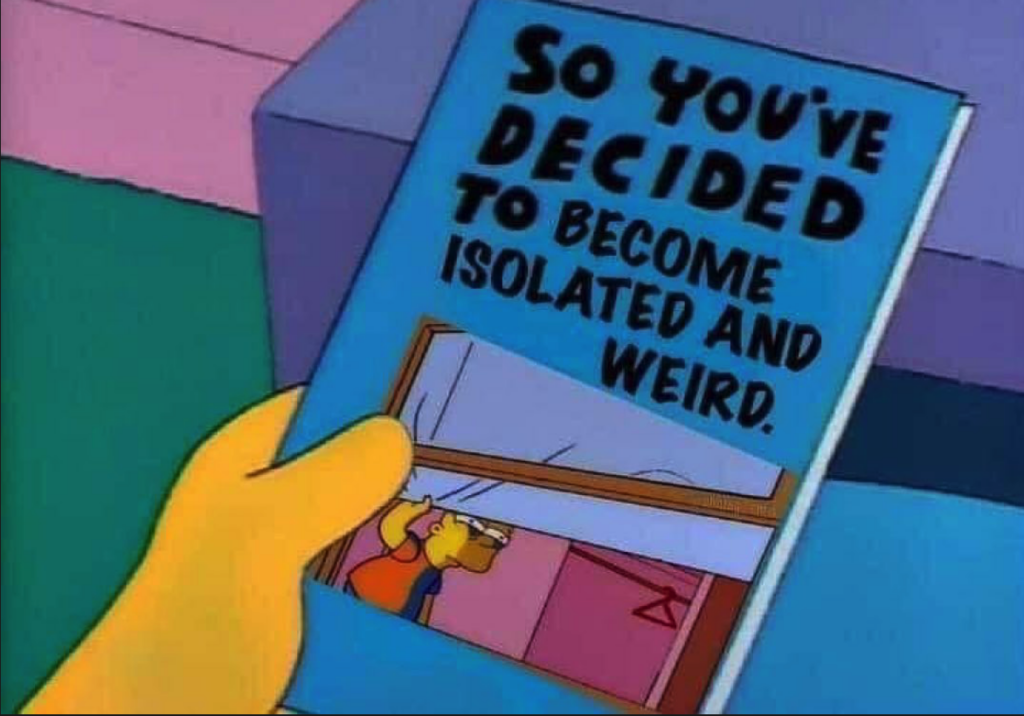
Many of us older people (who are finally getting a diagnosis or maybe realizing we might NEED one) recall the days of being called stupid, lazy, disruptive, defiant, or “bad” kids. We were daydreamers and flakes who “failed to apply ourselves.”
Since there was so little understanding of neuroscience, behavioral problems/character flaws became the default. Sort of like how, when people died of something like, say, pancreatic cancer (which kills very quickly), 400 years ago, clearly they were a victim of the “Evil Eye.”
Joking but not. Just pointing out we have come a LONG way in recognizing how amazing and variegated the brain IS.
“Thank” the Digital Age

Nothing happens in a vacuum, so obviously something other than neuroscience advances has driven the shift in perception. The digital age has been a blessing and a curse, at least for me.
Since I had severe social anxiety from an early age, it made it hard to learn how to be part of a group and conversation. Social media actually did wonders for my social anxiety. Humans learn by studying the group. But, if you are never part of a group because you’re “weird” or too scared, then how do you learn?
Then came Web 2.0….
EARLY ON, I joined a lot of chat rooms on Gather and groups on MySpace. Finally, I could watch and study. I could see how people interacted, took turns, “read the room” and recognized a lot of bad habits I had.
Since I had time to think through a response, I could respond better. The BACKSPACE button was and still is my BFF.
I also had zero concept that social interaction wore me out. Trust me, trying to seem normal is a LOT of work.
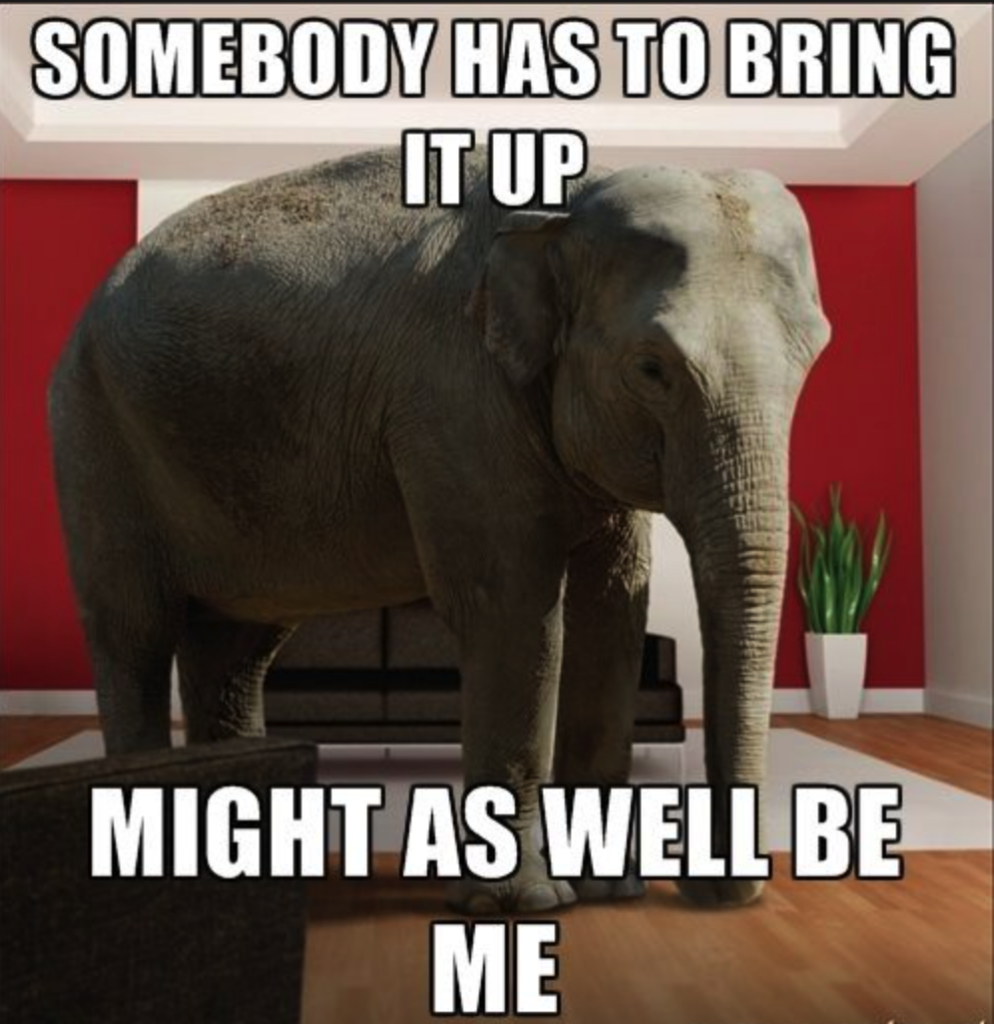
With social media, I could pace myself and interact at times my energy levels were better. When I fell into conflict, I eventually learned to back away, come back to it, think through what the person meant, etc. In many ways, social media made me kinder, gentler, and more compassionate with myself and others.
Additionally, I began to see my faults. My bad habits that turned people off on social media—AMAZINGLY—turned them off in life. Talking over people, being prideful, needing the last word (b/c I was so insecure), believing I had to be constantly entertaining, failing to really listen.
I am SO glad I don’t struggle with ANY of that anymore!
*dodges lightning*
I believe a lot of us ND people who used to just be weird loners with no friends or one or two friends started, for lack of a better term…showing up. Me? I went from the weirdo nerd who kept to herself reading and mostly engaging in solitary hobbies to finding my people.
Yes, on-line there were people like me who loved science fiction, D&D, campy horror films, and bad Kung Fu movies. People like me who also loved to argue whether Warp 10 was even possible or whether or not the sand worms in Dune should have spontaneously combusted due to friction.
Yes, this is the stuff that keeps me awake at night.
Again “Thank” the Digital Age

Conversely, while the digital age certainly offered ND people tools we’d never had before, it’s also created a lot of problems. We are starting to see the negative effects of having kids on technology too young, too much and too frequently.
Humans learn empathy by being around other people, studying body language and facial expressions. Most human communication is body language. When we are all in front of screens, working from home or even at an office in front of a screen all the time, we can lose those skills that have been innate since the dawn of humanity.
While I certainly do not claim to be an expert (this is all MY experience and opinions), I feel we might just be noticing ND more in a digital world.

And yes, I have seen the threads that Amish kids don’t have autism or spectrum disorders. BUT, I will also say that the Amish represent how human civilization worked for the past few thousand years.
They wear the same clothes made of natural materials, do a lot of physical labor, and there are no digital distractions. Their diet is all fresh food and very simple and life is very routine. Up at the same time, to bed at the same time. Rest on the Sabbath.
MAYBE the Amish DO have folks on the spectrum. Maybe they don’t. I’m not a researcher, so…um, okay. My point is, though, would we NOTICE neurodivergence in a routinized, agrarian society the way we do in the modern digital world?
So THIS SAID, if our digital world is a) showing us there were/are more ND people than we realized b) creating ND people c) stressing ND people…then we’re wise to learn our own limitations and develop compassion for ourselves and others.
Cuz frankly? The Neurotypical people don’t seem to be faring too well drinking from digital firehoses all day every day, every week of every year.
Beware of the Baader-Meinhof Phenomenon
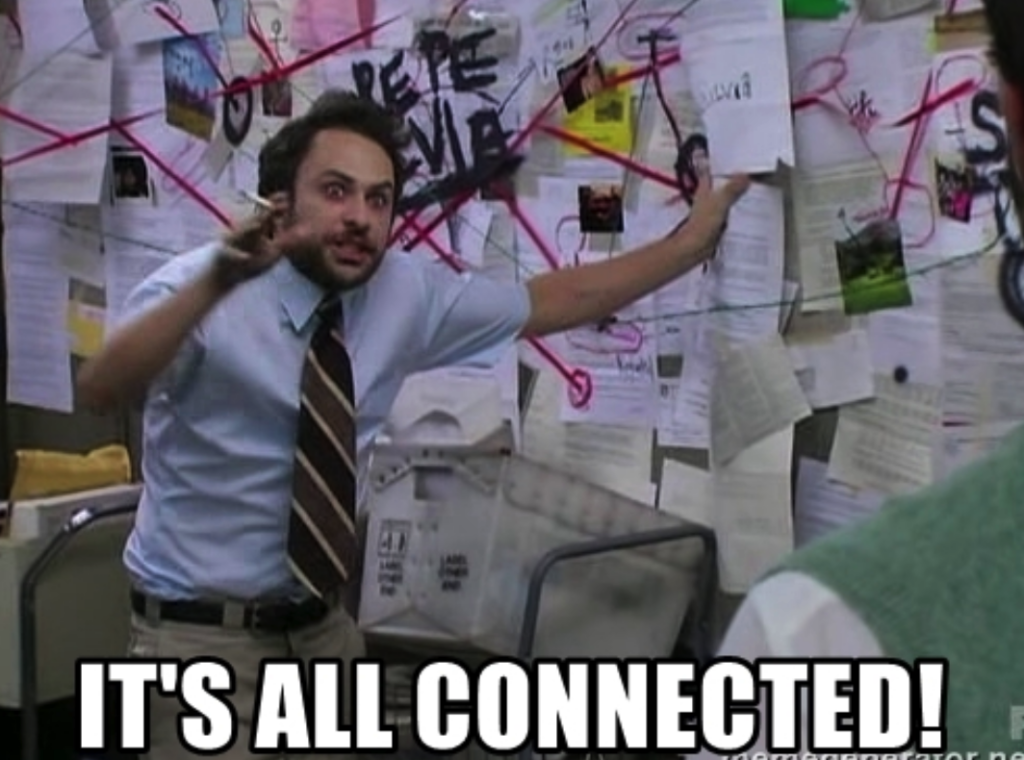
WHAT? Other than archaic names for common illnesses, impress your friends with THIS little nugget (Bay-dur MINE-hoff).
*flips hair*
Ever run into a term you KNOW you’ve never heard in your life, then hear it at least four more times in the next week? Or see something you know you’ve never seen before, then suddenly it’s everywhere? Reverse-harems? Punk-Rockabilly-Zydeco? Kombucha?
I’d never heard of Bikram Yoga until a friend told me about it and then…it was everywhere. Following me with sweaty mats…carrying Kombucha O_O .
The Baader-Meinhof phenomenon is also known as the frequency illusion or the recency illusion. While I DO want to highlight the strides the mental health fields have made regarding spotting and treating those on the ND spectrum, we also should be mindful we aren’t suddenly seeing it everywhere.
It is possible to be empathetic and responsible at the same time. Life is a process, and we are all in this together.
What Are Your Thoughts?
Do you think more people are on the ND spectrum because we are finally noticing it? So we can diagnose the far less acute cases?
Do you think the massive influx of data, images, and too much time at a screen is causing something wholly new never seen? For instance, repetitive work injuries weren’t as big of a thing until the invention of assembly lines.
Are the aliens reading our minds and we can’t concentrate because of all the recipes they’re trying to share?
All kidding aside, I want to always hold myself accountable for my behavior, actions, and inactions. For ME, though, recognizing my brain just did things very differently has been a huge help not only on my own, but when interacting with others.
It is my hope this blog helps you or someone you know and love. What do you think?








31 comments
Skip to comment form
THANK YOU for this post. THANK YOU. Autism/ADHD mom here, who wishes, beyond any intensity you can name, that diagnosing all of this was more acceptable when my child was 7, instead of 17 when we finally sought help and received their diagnosis. I’ll never forget the day when we finally sat down with them to tell them, and this child burst into happy tears before saying, “So I’m not just weird.” After years and years and YEARS of class bullying, peer outcasting, and feeling like they were never-ever going to fit in anywhere, they had a DIRECTION to go. A PLACE to be. An EXPLANATION for everything. And for her dad and I, it was a relief and a path to follow, to gain more understanding about our child. We MUST take away the stigma of Aut/ADHD. We MUST make it okay for people to be uniquely, beautifully different this way.
Thank you, this article is so good I had to share with my FB friends. It’s such a release to read about other people that feel the way I’ve felt for the last 60 years. I’m a good kind of weird and the knowledge gives me a tool to fight against the self-loathing, et all. Did I already say thank you?
Totally this –> “would we NOTICE neurodivergence in a routinized, agrarian society the way we do in the modern digital world?”
Sometimes my husband pushes for more “fun” “out of the house” because “everyone does it.” And I’m like “Look I come from polish farmers who only went to town once a month for flour and otherwise just chilled with their family and norwegian explorers who literally rowed out into the unknown ocean just to get away from people.”
Author
Same here! Though Norwegians and Scots. Dad’s family came to Texas before it was a state largely to be left the hell ALONE. Came from farmers, writers, soldiers and fishermen. All these occupations are very rote and don’t require a lot of social skills. Some of the most irascible people in history were writers. I feel like a lot of writers are blaming too much on being an introvert and failing to appreciate there may be other factors in play. Can’t hurt to at least take a look, right?
For me, getting out of the house is the opposite of fun. I don’t mind it too much if I can plan ahead of time. For instance, I am a total social butterfly at conferences, but those don’t happen all the time and I can plan ahead of time to be around people. I don’t like being ambushed with “getting out to do things!”
I’ll be sharing this with my younger brother, who is at the less-extreme end of the spectrum. He is 65 years old, and when he wasn’t talking as a two-year-old, my mother took him to different doctors to find out what was going on with him. They diagnosed him with autism – this was around 1960. The different training exercises that he was engaged in helped a lot, and despite the inevitable bullying in school (partly, too, because he is small and slight in stature), early on he developed a remarkable sense of self-esteem. He always related extremely well with older people. He is natural at reading another person’s character and has always been able to see right through others’ efforts to deceive him.
He was working and living independently when my father became chronically ill, so my parents asked him to return home to live, to have someone in the house when my mother needed to go out. Besides that, he hadn’t yet used the college funds earmarked for him. So he went home, stayed with my parents for as long as they lived, and completed his education with a degree in geology.
Three years ago, when my mother died and we were tying up loose ends on the house and estate, a former lady-friend of my older brother asked to have first dibs on the house. That was ideal, for she was happy to have my younger brother stay in the house as a tenant. Ideal for her: She has someone on site who knows the house inside and out, takes care of the outdoor work, can do repairs on her car and on household appliances, and so forth. Ideal for him: He didn’t have to think about uprooting his life and finding new digs.
As you know, change is difficult for people on the autism spectrum. I have been deeply impressed with my younger brother, how he adapted to the changes in his life while my mother was declining and after she died, as we cleaned out the house of generations of stuff. He exhibited great grace and flexibility, which was not easy for him. And he and his new housemate appreciate the other’s need for privacy and quiet.
With regard to the “popularity” of the ND spectrum – “everybody’s on it!” – I think that’s a normal cultural response to anything “new.” And yes, people will use it as an excuse for bad behavior, regardless of if they are actually on it. We saw the same thing 30 or 40 years ago, when everybody had to claim that they had grown up in a dysfunctional family. That was nothing more than an excuse for bad behavior by the majority of them. They did damage to those who really had come from dysfunctional families, most of whom didn’t use that as excuse, only as an explanation for some of their difficulties, as they pulled themselves up by their bootstraps.
Those who confiscate the ND spectrum bandwagon, to the detriment of those actually on the spectrum, are looking for attention that they don’t deserve. It takes a while, however, to winnow the wheat from the chaff.
Author
That is a fantastic story and a great example of how well a lot of us ND people can blend in and adapt. Many people might not even realize we are struggling. This is why ND becomes increasingly harder to diagnose when one grows older. We learn to mask, so what is totally obvious in a child might be virtually invisible in an adult.
I love your take on those confiscating the ND spectrum and I agree it should sort itself out. Remember when everyone had “multiple personality” or DIDD? Now they realize it is extremely rare and there is speculation as to whether or not it’s even a real thing.
My hopes are that I can keep putting more of a “normal” face on autism (I actually have what would have once been called Asperger’s, along with ADHD and some OCD). I can get around a lot of the “stuff” that used to derail me now just knowing what the heck is going on. Like I said, just recognizing I have to be mindful of energy levels has been HUGE. As a people pleaser I used to try and push to do all the things and make people happy…then fell apart at the stupidest thing, like my burger being the wrong kind. It had nothing to do with the burger, I was emotionally and mentally tapped out.
Now that I have a better understanding, I can manage much better. Diet, exercise, environment, boundaries are good for everyone.
But I did tell a friend (acquaintance) I was being tested for autism and, kid you not, she literally argued with me there was NO way I was on the spectrum. I think that is because in the larger cultural “mindset” all people with autism—> Rain Man. But things are changing, hopefully for the better. I see a lot of ways the ND issue is being handled that angers me, but one battle at a time.
Yeah, no way you could be on the autism spectrum – just like anyone in a wheelchair is stupid, and deaf, to boot. And the blind are stupid, and deaf, to boot. And the deaf are stupid, and deaf, to boot. Oh, yeah, blind, too.
I accompanied a blind friend, Annemarie, to a women’s Christian retreat several years go. We bunked together so I could help her with the layout of the facilities and accessing the different buildings. One of the other ladies on the retreat asked me for permission to talk to Annemarie – she assumed I was Annemarie’s nursemaid who just came along to assist. She complimented me for being so patient with my friend – it seemed to boggle her that Annemarie and I were close friends who hung out together a lot, aside from the retreat. (In fact, Annemarie was one of my proofreaders; she was a retired medical transcriptionist. She also had a wicked sense of humor. We often had to squelch our giggles so as not to get in trouble with others who would not understand.) Annemarie has been gone for four years now, and I miss her and her wit a lot.
One of my useless degrees is in behavioral psychology. I worked in special education for a several years and with autistic children. At that point in time there was little or no talk of a spectrum, although the students ranged from minimal social skills, think of rain man without the savant skills to higher functioning individuals. I’m not going to speculate your place on a spectrum, but Kristen you’re an extremely high functioning person and being proactive in eliminating unwanted stimulus and behaviors, I think you should be admired. And you’re entertaining, don’t change that.
I absolutely concur with your thoughts. Great admiration for Kristen, especially after reading this.
Is it possible for autism to develop in someone who hasn’t shown it in earlier life?
Author
Females (even as children) present differently. This is why it is such a beast for females—especially high-functioning females—to get a diagnosis. I thought I didn’t have any signs of autism until I started looking up brave YouTubers who were willing to share how females are different. The reason we were missed for so long is they were using the checklist for MALE patients on women (or the standard for boys on girls). Autism is something you are born with. You aren’t broken, just a MacBook in a PC world.
Does that answer your question?
Author
The other thing they are learning is, regardless of gender, if you’ve met one autistic or ND person, you’ve met one autistic or ND person. It isn’t a One-Size-Fits-All as they previously believed. There is a lot more nuance involved. I’d look at some videos and there are some self-tests you can do. If that leads that direction then find a good doctor who understands high-functioning autism.
To be honest, every single person I know–from very young to old–is going through extreme stress. They may not even be ND, but having these and other issues makes it worse. People have always had problems, whether emotional, physical, family, or environmental. Very likely a combination. But it seems like they are exponentially worse today.
I blame technology, even though I recognize its benefits. We were never meant to live with the entire world’s problems constantly bombarding us, nor with all the nonstop stimulation that technology requires from us. It literally sucks the life out of us. Then when we are forced to deal with unexpected illness or financial issues or family problems, we have hardly any resources left.
Your line that hooked me was “This is a post about grace for ourselves and others.” Yes. That is *most* important right now. We are all struggling. We need to have grace for ourselves and for others. We need to support each other. Encourage each other. Help each other. Try to understand ourselves and others. But even if we can’t, we can still be kind. Every tiny kindness adds up. Computers and technology can’t offer kindness. Only people can. And grace and kindness bring healing.
Hey Kristen! I met you when I was newly diagnosed with Auditory Processing Disorder in 7th grade. I was quiet, read books, and drew in my sketchbook. I didn’t make friends easily and tended to ignore other kids. When we met, I was so happy to have connected with someone like me! And your makeup game was fire!
APD is basically a disconnect between my brain and what I hear. I have to make an effort to focus on what is said to understand it. It’s literally white noise with occasional words sometimes. Learning what I had, I learned how to work around it. The teachers had me sit up front, I wrote everything down, and my grades improved.
When my youngest grandchild (one of twins) was assessed for autism, their GP said that the fact he was born with a strange-shaped head would have qualified him for assessment even without my daughter (a teacher) pushing for one. His skull quickly developed a standard shape and he’s learning in a mainstream school, but now has an assessment that will remain with him throughout his schooling and subsequent education and will at least not get put on the naughty step if he has a meltdown at school or ignores the teacher. He’s interacting more with others and already learning to mask (for instance, clapping when excited instead of stimming because that’s what other children do).
The rest of the family duly did our research. I guess we all tried out those test-yourself online questionaires, and some of us found how close we are to crossing that line on the spectrum. Suddenly my eldest daughter (whose twins they are) is less critical of her wayward younger brother (who has booked himself an assessment.)
I had always put down my youngest daughter’s dyslexia to a bout of meningitis at six months. (Or four, if you allow for her being two full months premature.) Now I’m not so sure.
My husband has PTSD. Some symptoms may seem similar to an observer, but they occur for totally different reasons.
I’ll answer why. Big RX, via funding and lobbies, first took over the development of the DSMIII and subsequent publications of all kinds to create conditions whereby they can sell medications for medical conditions they want to treat, but not cure. Some of which don’t actually exist. The money is in treatment. The corruption of Reagan, NIMA and the FDA is well documented. Reagan removed the prohibition against medical and medicine advertising. A good book that shows one aspect of this corruption is by Dr. Peter Berggin’s NF book called, Toxic Psychology, published in 1995. Used copies aren’t hard to find. Big RX wants everyone to think they are sick and need what big RX are telling you you need. This isn’t political, its factual.
Author
Well I refuse to use meds. I don’t like Big Pharma. So I adjust diet, exercise, light filters, timers, etc. And no argument here that they are making up disorders so people believe they need drugs, but a lot of this can be treated just with people not being stigmatized. Dyslexia doesn’t need drugs, neither does dyscalculia. The other issues on the spectrum might need medication but not to the degree that’s been pushed. I agree with another commenter that we were not designed to be plugged into everything everywhere all the time. We are no longer BORED. We never have any time off.
And yeah, Huxley called in in “Brave New World.” Have entire generations addicted to distraction, unable to cope with failure or conflict because we just hand them their Soma.
I agree with social media making almost everything a “fad” for their 15 minutes of fame. However, being “quirky” or “odd” as a child as I was learning to mask that I was different was agonizing. How many kids actually make a decision at 12 to learn how to act like everyone else or the next five years (our high school and middle school were together) would be hell. Then learning my youngest is autistic, my other children are as well as my mom, several relatives, and my grandson. For us, it’s a genetic component and down one branch of our genealogy. Interesting seeing old photos from 100 something years ago and know my great+ grandfather was likely autistic by that photo.
However, as I’ve gotten older, phones and technology are learning tools, nothing more. I can’t get flooded with all that information as it takes up too many spoons as I read it and it is exhausting. So, I stopped. I get a news blurp in the morning and my goal is to have my phone off and a book in hand at night.
Anyway, love your stuff, Kristen!
Author
Thanks, Libby. Same here. I use my phone mostly for language learning and audio books. Otherwise, like 4 people call or text me regularly (other than the spammers, of course).
It helps, your story, as does your courage to tell it.
My husband was diagnosed with Autism in 2022, as an adult, after we had been married for 9 years, and it was a relief to both have a reason for why he was struggling and a game plan for going forward, things I could do to make things easier on him. I am also ND, and spent years in the yahoo chat rooms watching interactions and practicing to make my real life interactions smoother! And then used that information in my novels, which improved as I learned more about how to read people. Thank you for this post! <3
Good questions, Kristen, and thought-provoking. Whether the digital firehose is causing problems today, I’m sure we are all far more aware of the spectrum. My son has a formal diagnosis, though in his case it’s mild, but seeing how he thinks and behaves I see so much of my younger self in him. I’m sure if I’d been at school today I would be diagnosed as on the spectrum, but there were no such tests or even awareness back then. All I can say is, it explains a lot.
I am fortunate that where I live and work, people these days are more aware, tolerant, and accepting of different ways of thinking. Formal diagnoses aren’t needed for us – whether socially or in the corporate world – to accept that not everyone needs to be a bouncy, confident extravert whose cup of joy overflows a the thought of “networking opportuities.”
Thank you for sharing these deeply personal and helpful insights! We have a couple of officially diagnosed grandchildren and looking up the family tree, I see traces of Asperger’s, etc. all over the place. Ditto with my high school peers. No. This is NOT something new. While often harmful, labels can be a power tool for understanding and acceptance of self and others.
Thank you, for a wonderful insight into how it feels to be neuro-divergent. To be honest, I think we all are, to a greater or lesser degree.
Can’t love this enough! I have two sons on the spectrum and just had one re-evaluated as an adult. Totally different process, just 7 years later. I’m thankful for advancement in diagnosing ND issues and for every mention that helps the world recognize and accept all the beautiful divergent minds out there. For what it’s worth, I do think we’re increasing the prevalence. But I would have to write a book to say all the ways we’re doing it.
Wow! What a long, obstacle laden circuitous journey you have had. Thank you for sharing it. I had a rather miserable life from about age 11 to my mid-20s. It got better, but I still struggled. I didn’t know what was wrong with me. My parents took me to Duke University for evaluation when I was 15. That was in 1966, before recognition of ADHD. I don’t recall gaining any insight from my visits at Duke. I struggled with all facets of life. Thankfully, I met my (2nd) wife. She saw that I had potential and encouraged me. I went to night school and completed my BS degree. I continued going to night classes and finished a second BS, then a master’s degree, then coursework towards a PhD in Engineering. In my early-30s, my then 7-year-old son was having trouble in school. We took him for psychological evaluation. He completed a series of tests. As the Doc was explaining the results, I was saying to myself I’ve got the same symptoms. He was diagnosed with ADHD. I subsequently was evaluated and was told a prototypical ADHD. I also had Major Depressive Disorder and General Anxiety Disorder. I decided to try the meds. They don’t work for everyone, but the combo of Ritalin and Prozac worked very well for me. It was like someone turned on a lightbulb. Shortly afterwards my professional career took off. I was promoted time and again ahead of my co-workers and rose to the rank of Principal Systems Engineer with Boeing and then Northrop Grumman. I ended up working onsite for 25 years at NASA, NOAA, and DOD. I then had an idea for a new technology. With my wife’s blessing, I left my corporate executive position and founded a high technology engineering and manufacturing company. I was able to patent my technology and I grew the company from 2 to 48 employees. I’m retired now and writing a memoir about my early struggles with ADHD, depression, and anxiety. My hope is that at least one person will be encouraged to not lose hope or sell themself short.
Author
I am actually beginning to wonder if “everyone” isn’t neurodivergent. Bear with me. I was a Neuroscience major back in the mid-90s and they actually believed if you had brain damage it was irreparable. A couple years later, they realized the brain is highly malleable. The idea that everyone has the same assembly line brain, to me, is so absurd as to be fantastical. Granted, I think there are people we call Neurotypical, but are they? These are the same people who paid people like you and like me to help them write a FOUR-PAGE essay in school. So what if the world was about music and creating and art and words, how “typical” would they be?
That is one of the main reasons I have been writing these blogs. We aren’t lazy, crazy or broken and a world that believes we are all clones, by definition, is either a) insane b) trying to sell you something c) both a and b.
In 1992 two BBC journalists, David Jessel and Anne Moir, published BRAIN SEX, a report on gender-related brain research. The report cited convincing studies showing that four vectors of gender identity including physical genitalia, identity, preference, and one more I’ve forgotten could be predictably altered in animals by tinkering with maternal hormones at critical points in gestation. Human research is unthinkable, but anecdotal evidence from experience such as stilbesterol, often prescribed during the forties to prevent miscarriages, shows that human hormones are equally vulnerable. That report was so controversial thirty years ago that no American publisher would touch it.
That’s just gender identity. Then there’s all that other stuff you mention. So yes. I’d say neuro-typical is a myth or at least a target seen dimly through dense fog.
I so needed your honesty and this blog. I understand your experience, and now I can seek better answers for myself. Thank you!
Kristen,
This is an awesome blog post! Thank you for the direct honesty and insight. It’s so easy to diagnose and put labels on things.
Kristen,
Thank you for the honesty and insight! It’s so easy to put labels on things when you’re bombarded with “information”.